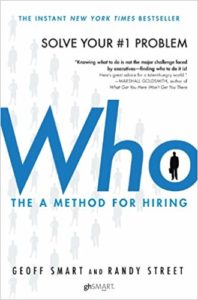
For entrepreneurs who you are doing well at six figures but want to scale to eight, serial eCommerce entrepreneur Fernando Campos says you have to launch more products, and Amazon is a huge revenue concentration for that. Fernando builds brands on online marketplaces. His expertise in Amazon strategy, product selection, and business development has led to the introduction of over 200 products to the market. In this interview, he goes in-depth about launching new products, the 80/20 Rule, and focusing on cashflow. He also touches on the changes for Amazon in 2019 and what every successful seller should be aware of.
—
Listen to the podcast here:
[smart_track_player url=”https://www.podetize.com/statsapi/www.podetize.com/wp-content/uploads/fileuploads/11-5b145ef137b51b3d1af0633e9305c43d/04/2019/989b303bef67024b65d1571345c201a4.mp3″ title=”Scaling To 8 Figures On The Amazon Marketplace with Fernando Campos” artist=”Nathan Hirsch” image=”https://freeup.net/wp-content/uploads/2019/04/OAS.png” ]
Download the audio file here.
Scaling To 8 Figures On The Amazon Marketplace with Fernando Campos
I’m here with Fernando Campos. Fernando, how are you?
I’m great. Thanks for having me. How are you?
I’m doing great. Fernando Campos is a serial entrepreneur who builds brands in the online marketplaces. He has an aptitude for growth and in a few years, he’s been able to generate over $15 million in revenue per year, grossing $30 million punitively. His expertise in Amazon strategy, product selection and business development have led to the introduction of over 200 products to the market. Fernando is also a partner at Seller Tradecraft, which is how we know each other, an online community and digital education program for both new and experienced sellers. Why don’t you take us back? What got you into being an entrepreneur or what did you do before you went in the entrepreneurial route? Have you ever had a real job?
I started right out of college and finance. I graduated in 2009. It was when finance is definitely a crazy time for the industry. I hated it. I was there for a little over a year. It was not meant for me. I was looking at all the partners and everything else and I was like, “This is not where I want to go.” Me and one of my best friends from college, Nick, who’s my business partner, we both quit our corporate jobs at the same time and joined this super early stage startup. We have fifteen, sixteen employees. We saw the company go from 15 to 80 employees in a year and then it imploded. It completely bails, it’s crazy. We learned a little bit of what not to do. We ended up going our separate ways.
I went to a company in SF and I got lucky. I was employee number two. I ended up being the head of sales and helping the team to basically scale to about 50 employees in those two years. Nick and I, we’re hanging out back in LA. We were having brunch of all things and then we were talking about what we wanted and everything and it was like, “Maybe we should start a company together.” We’ve learned so much in those in those years. We tried building our own Shopify store and failed miserably to be honest. We were working on for five months and we’d realize, “This is a lot harder than we thought.” We stumbled on the idea of selling on Amazon. First, we were actually thinking about selling on eBay, which is hilarious now thinking about it. This is the beginning of 2015 and then it was like, “Why are we going to sell on eBay if we buy everything on Amazon? It doesn’t make sense.” That’s how I got into it.
Focus on building a sustainable company on Amazon and you’ll be fine.
It’s so crazy those small things. You said you were working for this company. It’s growing and it’s scaling well. You could see yourself working there and then all of a sudden, it’s gone. At that point, it’s a low period in your life. From there, it ended up being one of the best opportunities that led you to be an entrepreneur now.
It’s funny to think about. We’re super excited. We had a strategy meeting on our calendar and we’re like, “Maybe we raised a lot more funding,” because this company was good at raising money. It was all the sales and marketing team and they’re like, “Now’s your last day.” We’re like, “No.” We went to Vegas. We didn’t know what else to do. We’re like, “We’re going to Vegas. We’ll figure it out tomorrow.”
What year was it that you started in Amazon? I came from 2008 which was a lot different than 2019. What year did you start?
Our first products went live in March of 2015.
It’s a solid four years. Amazon has come a long way in four years. What have been some of the biggest changes?

The reviews. I miss when you can just buy reviews. It’s so great. A lot of people would talk about it’s a lot more competitive now and in a lot of senses it is. I still think there’s such a little overall penetration of eCommerce. There are more and more prime members joining every single day. The opportunity in terms of the tools is way better now. The services are way better now. The breadth of that you can not only sell in dot-com but Canada is meaningful, Europe’s meaningful. I haven’t heard the best things about Australia, but I’m sure it’s going to get there. I would say the overall landscape, it’s a real industry and it is still in a lot of ways like the Wild Wild West.
Let’s talk a little bit about Seller Tradecraft because I know that’s how we know each other. We love you, guys. For the people that haven’t heard of you, what do you do all about? What are your values?
Anthony started the community a few years ago. Nick and I joined as partners. What we’re trying to do is help people build sustainable businesses. There are a lot of people that are building small teams and small enterprise and that’s totally great. I think it fits for a lot of people’s lifestyles. We’re well into eight figures and we try to teach people bigger ideas in terms of thinking a little bit bigger. I did a how to start the business all the way to getting into seven or some of our students are focused on now getting into the eight-figure mark. We try to foster a strong community, helping as much as we can giving back but then also creating products that will be helpful in speeding things up as you’re trying to get to that next level.
Let’s talk about that a little bit. Let’s say you’ve got someone reading and maybe they’re high six figures. They’re doing pretty well but they want to take it to seven, they want to take it to eight. What are the biggest changes? What should they be focused on to take those jobs?
I truly believe that focusing on the 80/20 is big. If you’ve got a ton of experience in retail, then focus on retail. For the majority of the people probably reading, Amazon’s a huge revenue concentration for them. If it were me and you’re trying to go to six, seven, launch more products, I think that’s the biggest thing. To be able to do that, then you have to focus on a few key areas. One is probably freeing up your time to make sure that you’re able to launch those products. Figuring out, “I’m good at the marketing side of getting these products launched, so maybe I need to bring somebody in to help me with the product selection and sourcing piece or vice versa.” I think cashflow is going to be a big thing, making sure that you have enough cash to launch those specific products. Honestly, everything else to me is not as important. I would focus on those few areas and do them extremely well and you’ll be at seven figures way faster than you think.
Credit terms are probably more important than negotiating price.
80/20 Rule, focusing on cashflow and launching new products. You’re doing $15 million a year. How often are you coming out with new products? Are we talking every month? Every quarter?
We launch probably fifteen a month. It hovers around that. It’s pretty crazy. With Chinese New Year’s, we’re a little bit lower. It’s because of the timing, but then throughout the rest of the year we’ll probably hit fifteen a year. We’re trying to build up the infrastructure so we can get to 30 or 40 a month.
The cashflow, which I know a lot of Amazon sellers struggle with. Any tips, anything that you’ve found that has been a game-changer for you?
It’s tough. One article that I always recommend is a Harvard Business Review article. I think it’s super important that everyone reads. It’s How Fast Can Your Company Afford Grow? It talks about cash conversion cycles and sells financeable growth. It took me two times to read it to grasp it fully. I highly recommend to read it until you get it. It’s a good thing to keep in mind, but credit terms from your supplier. I didn’t fully understand until reading the article and I think it all puts everything together. I would say credit terms are probably more important than actually negotiating price, which is counterintuitive. Because we look at a pretty high margin business in terms of usually choosing products that have a pretty low product cost relative to a high selling price. The difference is the Amazon fees.

You can easily find these products that have a high ROI. I would say that’s a huge piece and then getting your inventory planning down. In the beginning, it’s a little bit harder because everything is so new, but as you start building a little bit more predictability, trying to get smaller shipments and sending them more frequently is going to be helpful. The last thing is about being disciplined. I get messages all the time like, “My priority is at 70% ROI but I’m having cashflow issues.” I’m like, “That’s literally the problem right there.” Overall, those are some of the things that I would be thinking about when you’re trying to scale. Cash is going to be king.
Let’s talk about Amazon in 2019 because even going back to 2018, there are tons of changes. What are you seeing working? If someone’s a successful seller and they’re reading right now and they’re saying, “How do I get to the next level? What can I do that maybe wasn’t available last year? What should I be aware of?” What do you get?
The ranking is always one of those things. It constantly changes. It’s probably one of the most dynamic parts of Amazon. Right now, at least what we’re seeing is that search, find, buy, it is the best where a customer actually goes searches. We did come up with a software project called Pixelfy.me, which creates those links really well. I will say that at least for us, in our launches right now, that’s what we’re using, especially when the products are on page one or two. It’s super effective. Definitely check that out. I definitely see there’s a lot of stuff changing with this one vendor program and everything else. Overall, I think if you have a fly-by-night company, I would be a little bit scared. I would focus on building a sustainable company on Amazon and you’ll be fine. Trying to reduce your revenue concentration between SKUs, launching more products and creating a great customer experience. Overall, that has a real tangible value that can be eventually sold or whatever you decide to do.
I can’t have you here without talking more about hiring. You have hired a ton of people for your Amazon business, for Seller Tradecraft. What are some hiring tips? What have you learned from hiring all these people? I’m assuming that you’ve made some great hires and some bad hires. Give me some lessons there.
We have 70 employees now. We’ve made probably every mistake possible. I’m sure there are still more that are coming. I would say especially as it relates to outsourcing, I think in the beginning we had too low of expectations. That’s where I think working with a company like FreeeUp is really awesome because then I think it can help you set the right bar of expectations. For us, we were like, “We’re only going to pay them $3 an hour, $4 an hour and it’s fine. They’re good enough.” I think that was the problem, the good enough part. However they decide to hire, but setting a good standard of like, “This person, I want to work with.” I’m excited to give them these projects or tasks or whatever it may be. If you have to teach them everything or you’re resistant to delegating, then you made the wrong hire. At the end of the day, they’re supposed to be taking stuff off your plate instead of you continuing to do it because you don’t trust them. One big piece of that is a mental shift.
The second thing is creating a case study. The case study is obviously an important piece. You want to make sure that they can demonstrate that they’re capable. Probably the more important part is actually hopping on a call with them or a Skype call and then having them walk through the case study with you on the phone. That’s super important because it teaches and it explains how they’re thinking about it, how good their communication skills are. That’s another big piece that we’ve added to our process, which helps us hire better. The last thing is all this stuff has been done before, so you don’t have to create everything from scratch. As you’re building on teams, look at books like Who and Topgrading, which are probably the most famous books around recruiting. Take a look at their templates, look at their process and then instead of trying to come up with their own ideas, use theirs as a model and then innovate them.
What else is cool is going on with Amazon and going on with you. Is there anything I missed?
There’s so much. Everything is a good man. I’m actually leaving for a month, which I’m super excited about. I’m doing an Amazon Masterminds and I’m heading to London and Barcelona, which would be cool, just taking off. For those that need inspiration, just honestly do it. It’s one of those things and I totally relate. Buying real estate to me has always been one of those things like, “Do I really have time? Do I want to do this?” I haven’t pulled the trigger but I’ve committed. In 2019, I’m going to buy my first investment property even if it’s a mistake. I want to learn how to do it. I think you pulling the trigger on launching your first product is exactly the same thing. There’s a mental barrier around it sometimes. For those that haven’t, really commit to doing it because I think it can really change your life forever.
Where can people contact you? Where can people find out more about you?
They can reach out to me at Fernando@SellerTradecraft.com. I’m on Facebook. I’m pretty active in the groups and we have a public Facebook group where people ask questions all the time. It’s Seller Tradecraft. Just look us up.
Thanks so much for coming on.
Thanks for having me. I really appreciate it.
Important Links:
- Fernando Campos
- Seller Tradecraft
- How Fast Can Your Company Afford Grow?
- Pixelfy.me
- Who
- Topgrading
- Fernando@SellerTradecraft.com
- Seller Tradecraft – Facebook
About Fernando Campos

